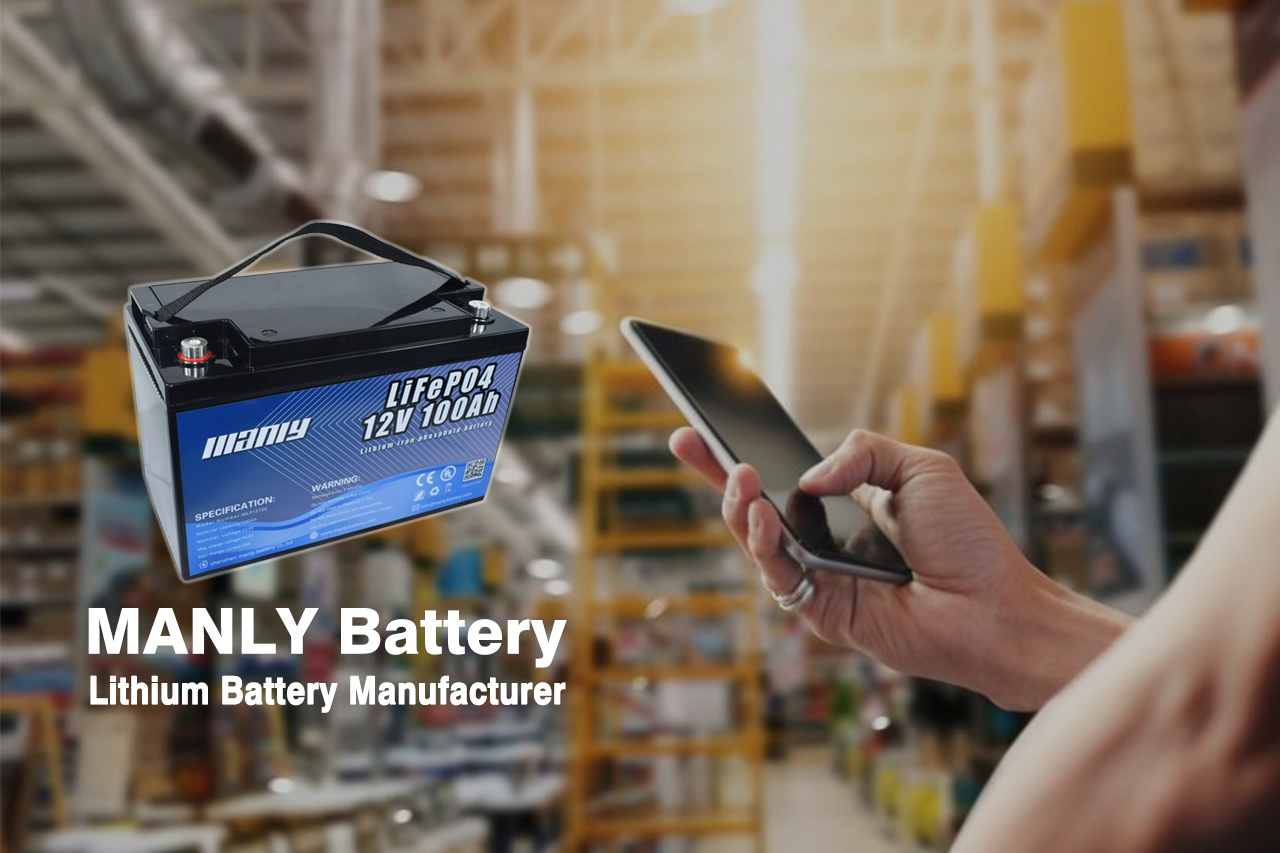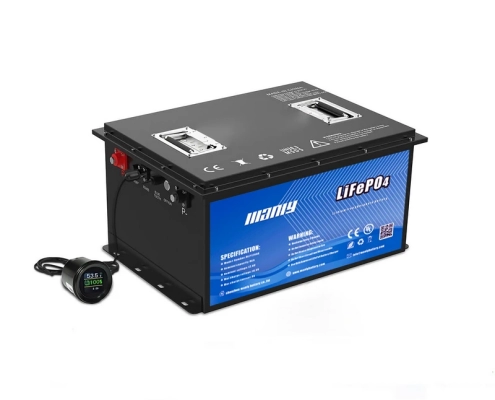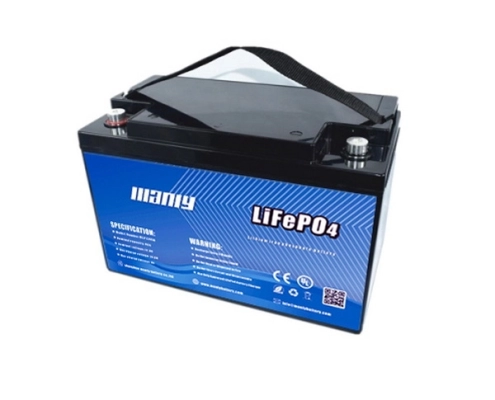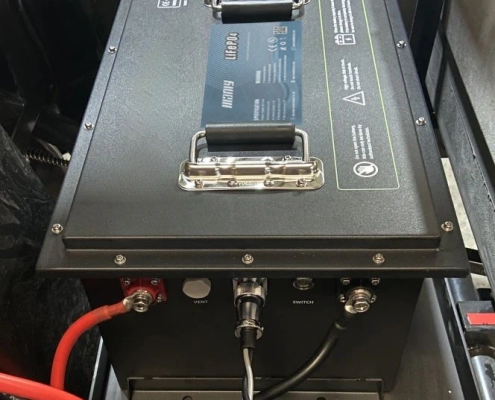How Are Lithium Ion Batteries Manufactured
Table of Contents
- How Are Lithium Ion Batteries Manufactured
- What Are Lithium Ion Batteries?
- Materials Used in the Lithium Battery Manufacturing Process
- Lithium Ion Battery Manufacturing Process
- The Role of Quality in the Lithium Battery Manufacturing Process
- Why Choose MANLY Battery as Your Trusted Battery Manufacturer?
- 1. Over a Decade of Excellence in the Lithium Battery Manufacturing Process
- 2. Industry-Leading Production Capacity
- 3. Versatile Product Line for Diverse Applications
- 4. Cutting-Edge Lithium Battery Production Process
- 5. Customized Solutions to Meet Specific Needs
- 6. Global Certifications and Long-Term Reliability
- 7. Safety and Energy Efficiency Leadership
- 8. Enhanced User Experience
- Conclusion
- Learn More About Battery
Lithium ion batteries are indispensable in today’s technology landscape, powering applications from golf carts and robots to marine vessels and energy storage systems. Renowned for their high energy density, long lifespan, and consistent performance, these batteries are integral to advancing innovation across industries. A clear understanding of the lithium battery manufacturing process and choosing a reputable battery manufacturer ensures optimal efficiency and quality. With over 13 years of expertise, MANLY Battery leads the industry in delivering cutting-edge lithium solutions, leveraging state-of-the-art manufacturing technologies, rigorous quality controls, and globally recognized certifications to serve diverse commercial and industrial needs.
What Are Lithium Ion Batteries?
Definition and Components
Lithium ion batteries are rechargeable batteries that generate electricity by transferring lithium ions between the anode and cathode. These batteries are celebrated for their high energy density and long cycle life, making them one of the most advanced energy storage technologies available. Key components of a lithium ion battery include:
- Cathode: The positive electrode that determines the battery’s capacity and voltage.
- Anode: The negative electrode that stores lithium ions during charging.
- Electrolyte: A conductive solution that facilitates ion flow between electrodes.
- Separator: A critical safety layer that prevents direct contact between the electrodes, mitigating short circuits.
MANLY Battery specializes in LiFePO4 (Lithium Iron Phosphate) chemistry, which stands out for its enhanced safety, extended lifespan, and exceptional performance in extreme conditions. These features make it a superior choice for demanding applications.
Applications Across Industries
- Golf Carts: Lithium ion batteries offer a lightweight and efficient power source for golf carts, enabling faster charging, extended ranges, and improved performance. These advantages make them a preferred choice for both recreational and industrial golf cart use.
- Boats: For marine environments, lithium ion batteries provide exceptional durability and resistance to harsh conditions. Their high energy output ensures reliable power for boats, whether used for leisure or commercial operations.
- Robots: In automation and robotics, the consistent power output and compact size of lithium ion batteries enable seamless operation. They enhance efficiency and reduce downtime in applications such as warehouse automation and precision industrial processes.
- Energy Storage: Lithium ion batteries are critical for renewable energy systems, offering efficient storage for solar and wind power. They ensure a stable energy supply during low-generation periods, making them a key component of modern energy storage systems for homes and businesses.
Materials Used in the Lithium Battery Manufacturing Process
Lithium Ion Battery Cells: The Core Components
Lithium ion battery cells form the foundation of batteries used in various applications, including golf carts, energy storage systems, and robotics. Each cell is a self-contained unit comprising the following components of a lithium battery:
- Anode:
Made from carbon-based materials like graphite, the anode releases electrons during discharge, enabling the battery to generate power. - Cathode:
Composed of lithium metal oxides such as lithium cobalt oxide (LCO), lithium nickel manganese cobalt oxide (NMC), or lithium iron phosphate (LiFePO4), the cathode determines the battery’s capacity and voltage. - Electrolyte:
A lithium salt solution that facilitates ion movement between the anode and cathode, ensuring efficient energy transfer while maintaining chemical stability. - Separator:
A porous material that prevents direct contact between the electrodes, avoiding short circuits while allowing ionic flow.
Raw Materials and Environmental Impact
The lithium battery production process begins with sourcing essential raw materials like lithium, cobalt, and nickel. These resources are refined to battery-grade purity but pose environmental and ethical concerns. Advancements in recycling technologies and alternative materials aim to mitigate these challenges, promoting sustainability in battery production.
Electronics and Components in Making a Lithium Battery Pack
The efficiency and safety of lithium ion batteries rely heavily on their electronic components. These include:
- Battery Management System (BMS):
The BMS regulates critical parameters such as temperature, voltage, and current. It balances charge and discharge across cells, prevents overcharging, and mitigates overheating risks, ensuring the battery’s longevity. - Electrical Connections:
Copper and aluminum terminals link individual cells, ensuring seamless electron flow throughout the pack. - Sensors and Control Units:
Integrated sensors provide real-time performance data to the BMS, optimizing efficiency and enhancing safety during operation.
Battery Casings: Structural Integrity and Protection
The casing of a lithium ion battery safeguards its internal components and contributes to durability and thermal stability. Materials used include:
- Metal Casings:
Aluminum and steel are popular for their strength and thermal conductivity, helping dissipate heat and extend battery life. - Polymer Casings:
Lightweight plastics and rubber offer flexibility and portability, ideal for applications like golf carts and robotics. - Thermal Management Systems:
Heat-resistant materials protect batteries from temperature fluctuations and external impacts, ensuring stable operation under challenging conditions.
Advancing the Battery Manufacturing Process
The lithium battery manufacturing process involves precise fabrication techniques to ensure optimal performance and safety. From sourcing high-quality materials to integrating advanced components, every step in battery fabrication is critical to producing reliable and efficient lithium ion batteries for diverse applications.
Lithium Ion Battery Manufacturing Process
The lithium battery production process is a meticulous sequence of steps that transforms raw materials into high-performance batteries. Each stage is critical to ensuring quality, safety, and efficiency, making it essential for any leading battery manufacturer to excel at every phase.
Step 1: Raw Material Extraction and Preparation
The process begins with sourcing and refining essential materials:
- Lithium: Extracted from hard rock mines or brine pools.
- Cobalt and Nickel: Mined and processed to high-purity grades for use in cathodes.
- Graphite: Refined to create high-quality anode materials.
While these materials are vital, challenges like the ethical concerns of cobalt mining and the environmental impact of lithium extraction are driving innovations in recycling and sustainable alternatives.
Step 2: Active Material Synthesis
In this phase, the key components of a lithium battery, the cathode and anode, are synthesized:
- Cathode: Created by combining lithium with cobalt, nickel, or manganese oxides to form stable compounds.
- Anode: Manufactured using graphite, a conductive carbon-based material.
Advanced chemistries, such as Lithium Iron Phosphate (LiFePO4), enhance battery safety, thermal stability, and lifespan. MANLY Battery employs this technology to meet diverse application demands.

Step 3: Electrode Manufacturing
Electrode manufacturing is a precision-driven step that includes:
- Slurry Preparation: Active materials are blended with binders and solvents to form a slurry.
- Coating and Drying: The slurry is applied to metal foils—copper for anodes and aluminum for cathodes—and dried.
- Calendaring: Coated foils are compressed to a precise thickness and density to optimize energy transfer.
MANLY Battery’s automated systems ensure consistent coating and high-precision calendaring, producing reliable electrodes with minimal variation.
Step 4: Cell Assembly
The assembled electrodes are combined with separators to form cells:
- Stacking or Winding: Electrodes are arranged with separators to maximize surface area for energy exchange.
- Electrolyte Filling: A lithium salt-based electrolyte is added to enable ion movement between electrodes.
- Sealing: Cells are hermetically sealed to prevent leaks and contamination.
Using advanced laser welding technology, MANLY Battery ensures secure seals, enhancing the durability and safety of its cells.

Step 5: Formation and Aging
The formation process is crucial for preparing the battery for long-term use:
- Initial Charge/Discharge: This forms the solid electrolyte interface (SEI) layer on the anode, a key to battery performance and longevity.
- Aging Period: Cells are stabilized over time to ensure consistent performance and capacity.
MANLY Battery conducts rigorous performance tests at this stage, guaranteeing reliability and efficiency.
Step 6: Battery Pack Assembly
Individual cells are assembled into modules and packs for real-world applications:
- Module and Pack Assembly: Cells are connected in series or parallel to achieve the desired voltage and capacity. Safety features and thermal management systems are integrated to protect against overheating or short circuits.
- Integration with BMS: A battery management system monitors parameters such as voltage, current, and temperature, optimizing performance and ensuring safety.
The Future of Battery Fabrication
The lithium battery manufacturing process continues to evolve, with innovations in sustainable materials, advanced chemistries, and automation driving progress. Leaders like MANLY Battery leverage these advancements to deliver safe, high-quality batteries for diverse applications, from renewable energy to electric vehicles and beyond.
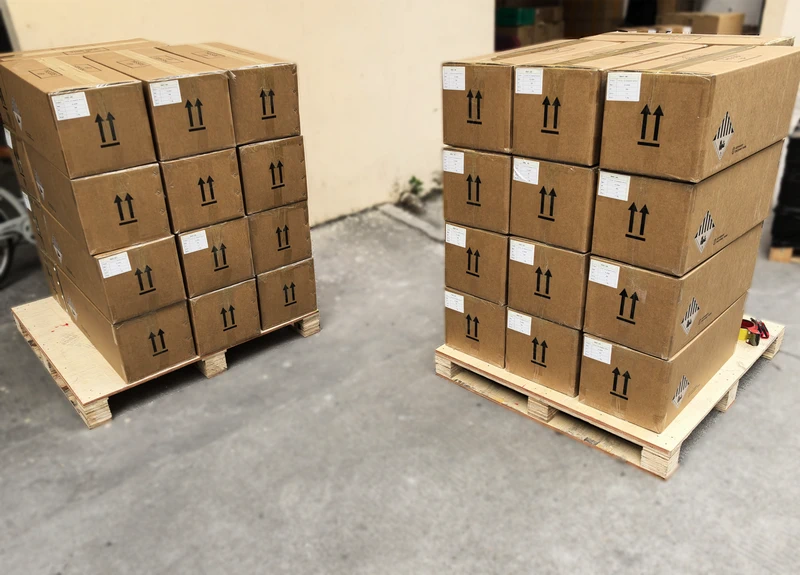
The Role of Quality in the Lithium Battery Manufacturing Process
Impact on Performance and Lifespan
The quality of battery fabrication significantly influences a lithium ion battery’s performance, lifespan, and safety. Poor manufacturing can lead to reduced capacity, inconsistent performance, and critical safety hazards like thermal runaway—a dangerous condition caused by uneven operation.
Conversely, high-quality battery production ensures:
- Improved Performance: Consistent energy output and efficiency.
- Extended Lifespan: Durable materials and precise construction minimize wear over time.
- Enhanced Safety: Proper assembly and advanced protective measures reduce failure risks, even in extreme conditions.
Manufacturers like MANLY Battery emphasize rigorous quality standards to deliver reliable, high-performing batteries for various applications.
Key Quality Control Measures in Battery Manufacturing
Producing safe and reliable lithium ion batteries requires stringent quality control measures, such as:
- Multiple Testing Stages:
- Batteries undergo voltage, current, and capacity tests at multiple production stages.
- This ensures every cell and pack meets strict performance specifications.
- Thermal Testing:
- High-temperature tests evaluate stability and safety under extreme conditions.
- MANLY Battery employs test chambers capable of reaching up to 100°C, replicating real-world scenarios.
- Advanced Battery Management Systems (BMS):
- BMS technology monitors and balances cells, optimizing performance and preventing overheating.
- Proprietary BMS systems at MANLY Battery enhance safety and efficiency in all operating environments.
- Visual and Structural Inspections:
- Every battery undergoes thorough checks to identify any structural or physical defects that could impact performance.
Role of Automation in the Battery Making Process
Automation is a cornerstone of the modern lithium battery production process, enhancing precision, consistency, and efficiency. Automated systems reduce human error and streamline critical processes, including:
- Laser Welding:
- Ensures secure and precise connections for robust performance.
- MANLY Battery’s fully automated laser welding machines deliver uniform, high-quality welds, producing durable and refined products.
- Automated Testing:
- High-powered testing systems validate performance under stress, handling up to 200V and 500A.
- Material Handling and Assembly:
- Robots execute electrode stacking, electrolyte filling, and cell assembly with unmatched accuracy.
By integrating advanced automation, MANLY Battery maintains stringent quality standards, ensuring that every product meets the demands of applications like golf carts, boats, robots, and energy storage systems.
Why Choose MANLY Battery as Your Trusted Battery Manufacturer?
1. Over a Decade of Excellence in the Lithium Battery Manufacturing Process
With over 13 years of expertise, MANLY Battery stands out as a leader in the lithium battery industry. Operating from advanced lithium battery factories in Shenzhen, Dongguan, and Huizhou, covering 65,000 square meters, the company leverages extensive experience to deliver unmatched quality in battery fabrication and production.
2. Industry-Leading Production Capacity
MANLY Battery achieves a daily production capacity of 6MWh, assembling more than 3,000 batteries every day. This impressive scale ensures the ability to meet large-volume demands without compromising quality, solidifying their position as a premier battery manufacturer.
3. Versatile Product Line for Diverse Applications
Offering LiFePO4 and lithium ion batteries ranging from 6V to 72V, MANLY Battery caters to a wide variety of applications:
- Golf Cart Batteries: Reliable power for efficient transportation.
- Energy Storage Systems: Ideal for residential and industrial needs.
- Robot Batteries: Designed for advanced logistics and military automation.
- Marine Batteries: Built to withstand harsh environments with dependable performance.
Every product undergoes precise engineering to ensure optimal performance and durability across industries.
4. Cutting-Edge Lithium Battery Production Process
MANLY Battery incorporates state-of-the-art manufacturing technologies, including:
- Automated Laser Welding Machines: For precise, durable welds that enhance reliability.
- High-Power Testing Cabinets: Capable of handling up to 200V and 500A, ensuring consistent performance under demanding conditions.
- High-Temperature Test Chambers: Testing batteries at temperatures up to 100°C to guarantee reliability even in extreme environments.
These advanced processes ensure each battery meets and exceeds industry standards.
5. Customized Solutions to Meet Specific Needs
Recognizing diverse client requirements, MANLY Battery specializes in making a lithium battery pack tailored to unique specifications. Whether it’s adjusting voltage, capacity, or design, their customization services deliver solutions aligned with customer goals.
6. Global Certifications and Long-Term Reliability
MANLY Battery’s adherence to international quality standards is demonstrated through certifications such as UN38.3, IEC62133, UL, and CE. Each product also includes a 10-year warranty, underscoring their commitment to reliability and customer satisfaction.
7. Safety and Energy Efficiency Leadership
Safety remains a top priority with advanced features like:
- Short Circuit Protection
- Overcharge Safeguards
- Impact Resistance
Their LiFePO4 batteries achieve an impressive 95% energy efficiency, outperforming traditional options and setting industry benchmarks.
8. Enhanced User Experience
Modern features like Bluetooth connectivity and intuitive battery level displays position MANLY Battery at the forefront of energy innovation. These enhancements ensure users benefit not just from reliable batteries but also from seamless energy management solutions.
By choosing MANLY Battery, you gain a partner committed to innovation, quality, and customization. Their advanced battery making process ensures reliable, high-performance solutions that cater to the evolving energy needs of today and tomorrow. Explore MANLY Battery’s versatile products and discover why they are a trusted leader in the global lithium battery market.
Conclusion
In the highly competitive lithium battery manufacturing process, MANLY Battery distinguishes itself with a steadfast dedication to quality, safety, and innovation. Utilizing advanced technologies like automated laser welding and conducting rigorous testing at temperatures up to 100°C, MANLY Battery ensures every product meets and exceeds industry standards.
With versatile applications in golf carts, robots, marine equipment, and energy storage systems, MANLY Battery offers reliable and efficient solutions tailored to diverse needs. Supported by global certifications, a 10-year warranty, and exceptional customer service, MANLY Battery is a trusted battery manufacturer delivering excellence in every product.
Choose MANLY Battery to drive your business forward with dependable energy solutions and cutting-edge innovation.

